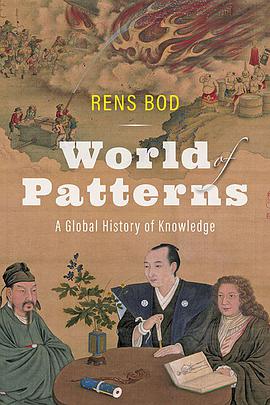World of Patterns
Douban
A Global History of Knowledge
Rens Bod Tradotto da: Leston Buell
Sinossi
The idea that the world can be understood through patterns and the principles that govern them is one of the most important human insights—it may also be our greatest survival strategy. Our search for patterns and principles began 40,000 years ago, when striped patterns were engraved on mammoths' bones to keep track of the moon's phases. What routes did human knowledge take to grow from these humble beginnings through many detours and dead ends into modern understandings of nature and culture? In this work of unprecedented scope, Rens Bod removes the Western natural sciences from their often-central role to bring us the first global history of human knowledge.
Having sketched the history of the humanities in his ground-breaking A New History of the Humanities, Bod now adopts a broader perspective, stepping beyond classical antiquity back to the Stone Age to answer the question: Where did our knowledge of the world today begin and how did it develop? Drawing on developments from all five continents of the inhabited world, World of Patterns offers startling connections. Focusing on a dozen fields—ranging from astronomy, philology, medicine, law, and mathematics to history, botany, and musicology—Bod examines to what degree their progressions can be considered interwoven and to what degree we can speak of global trends.
In this pioneering work, Bod aims to fulfill what he sees as the historian's responsibility: to grant access to history's goldmine of ideas. Bod discusses how inoculation was invented in China rather than Europe; how many of the fundamental aspects of modern mathematics and astronomy were first discovered by the Indian Kerala school; and how the study of law provided fundamental models for astronomy and linguistics from Roman to Ottoman times. The book flies across continents and eras. The result is an enlightening symphony, a stirring chorus of human inquisitiveness extending through the ages.
contents
Preface: The Wonder of Knowledge
Introduction. Understanding the World through Patterns and Principles
Chapter 1. The Awareness of Patterns: Prehistory
Chapter 2. The Explosion of Patterns and the Awareness of Principles: Early Antiquity
Chapter 3. The Explosion of Principles and the Awareness of Deduction: Classical Antiquity
Chapter 4. The Reduction of Principles: Postclassical Period
Chapter 5. The Discovery of Patterns in Deductions: The Modern Era
Conclusion. The Origin, Growth, and Future of Knowledge
Acknowledgments
Notes
Bibliography
Index